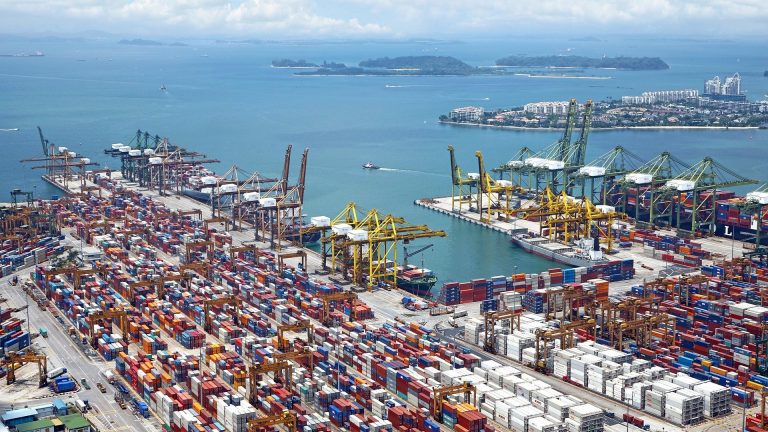After being rattled by the Coronavirus Disease 2019 (COVID-19) pandemic, the global supply chain is still struggling to recover. Two of America’s busiest ports, Long Beach and Los Angeles, saw records shattered on Oct. 18 as 100 ships waited to enter and unload. The previous record of queued ships was 97 on Sept. 19.
The backlog has been attributed to a variety of factors, such as a surge in demand for imported goods, shortage of dockworkers to offload goods, lack of truckers to move items, and space constraints for containers in the port.
“For comparison, ‘normal’ total vessels at anchor, pre-COVID backup, was 17 vessels at anchor with zero in holding areas since 2004, when there were half a dozen,” Kip Louttit, executive director of the Marine Exchange of Southern California, said in an emailed note to Business Insider.
To offload goods, cargo carriers have had to wait up to five weeks, and officials are turning to hold areas that have not been used since 2004 to harbor cargo, bulk, and container ships.
“Crews are bored to tears… They’re sitting on the ship, looking onshore, eating three meals a day and standing watch,” Louttit said to Daily Mail. He also revealed that once the containers reach land, it takes weeks to line and unload them. “It is an all-time record to have 100 vessels out there… The number of container ships out there is 70, so there’s your holiday shopping,” Louttit added.
Success
You are now signed up for our newsletter
Success
Check your email to complete sign up
In order to ease the backlog, the Biden administration announced last week that the port of Los Angeles will transition to a 24-hour, seven-day-a-week operation. The Long Beach port has already been working around the clock since last month.
With supply chain congestion emptying store shelves and increasing consumer prices, President Biden reached a deal with unions and business leaders from UPS, Walmart, FedEx, and others to intensify operations at ports.
Samsung, Home Depot, Target, and Walmart have also made guarantees to step up production to more than 3,500 shipping containers per week.
A report from CNN states that The White House is thinking about engaging the National Guard to help deal with the backlog.
Gene Seroka, head of the Port of Los Angeles, said in an interview with CNN that Biden’s 24/7 plan has contributed to the movement of cargo that has been stuck in the dock for weeks. “We had 25% of all cargo on our dock sitting here for 13 days or longer [and] that’s been cut in just about half over the last week,” Seroka said.
However, logistic experts are far from convinced that the all-night operations will have a significant impact. Seroka believes the Port of Los Angeles will continue its 24/7 schedule into next summer.
“These issues go through the entire chain, from ship to shelf… That’s why we’re not just working with the ports. It’s the truckers, the rail companies, the operators and also those retail companies that are at the other end of those supply chains,” Pete Buttigieg, the transportation secretary, told ABC7.
The backlog is also creating concern among environmentalists and public health officials, as the diesel-fueled vessels anchored outside the ports increase pollution. More than 100 tons of smog and other harmful pollutants are generated during normal times.
Together, the ports of Los Angeles and Long Beach account for nearly 40 percent of all the seaborne imports to the United States. With another 45 ships scheduled to arrive at the ports this week, the backlog is expected to worsen.














